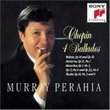| All Artists: Dmitry Shostakovich, Mariss Jansons, Bavarian Radio Symphony Orchestra Title: Shostakovich: Symphony No. 2; Symphony No. 12 Members Wishing: 0 Total Copies: 0 Label: EMI Classics Original Release Date: 1/1/2006 Re-Release Date: 1/10/2006 Genre: Classical Styles: Historical Periods, Modern, 20th, & 21st Century, Symphonies Number of Discs: 1 SwapaCD Credits: 1 UPC: 094633599420 |
Search - Dmitry Shostakovich, Mariss Jansons, Bavarian Radio Symphony Orchestra :: Shostakovich: Symphony No. 2; Symphony No. 12
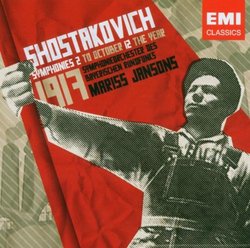 | Dmitry Shostakovich, Mariss Jansons, Bavarian Radio Symphony Orchestra Shostakovich: Symphony No. 2; Symphony No. 12 Genre: Classical
|
Larger Image |
CD DetailsSimilar CDs
Similarly Requested CDs
|
CD ReviewsAn Ideal Pairing of the Extremes of Shostokovich's Symphonic Grady Harp | Los Angeles, CA United States | 07/05/2006 (5 out of 5 stars) "Though the mighty symphonies of Dmitri Shostakovich stand solidly on their own as musical compositions, the underlying Russian history that is mirrored in the times in which each symphony was composed sheds even more light on the non-musical content. The rarely performed Symphony No. 2 in B flat major was not listed as a symphony as such on the original score title page: instead it is called 'To October - A Symphonic Dedication'. The work is a strange one, full of experimental sonorities including a brooding, almost choral sounding opening movement, a second movement which begins with a trio for solo violin, clarinet and bassoon soon mutating to a full blown cacophony of winds versus strings, a factory whistle blast (horns and trombones) serves as introduction for the choral movement, 'To October'. While the opening of the work challenges the 'new decadent Western music', the choral ode is richly tonal, the chorus singing about the begging for work and bread until Lenin brought the October Revolution and an end to suffering on the part of the peoples of Russia - clearly composed to satisfy the political demands of the regime in power. It works! Mariss Janssons conducts the Bavarian Radio Symphony Orchestra and Chorus is a deeply moving performance. Symphony No. 12 in D minor (The Year 1917 - in Memory of Lenin) is far more familiar to audiences and though it, too, references the influence of Lenin on the Russian the work does not rely on words or chorus nor does it separate into movements. The sections - 'Revolutionary Petrograd', 'Razlif' (Lenin's hiding place in a peasant's hut), 'Aurora' (the battle ship that signaled the beginning of the October Revolution), and 'The Dawn of Humanity' - are played without separation. The themes and development are mature Shostakovich and the effect of the work is overpowering, calling for a very large orchestra. Janssons conducts the work with all of the nuances and subtleties balanced with the heroic power of the work. It is a fine performance and an even finer CD with such thought as to pairing these two associated Lenin symphonies that have such different ways of addressing the same event! Grady Harp, July 06" Not his best, but still very much worth getting Samuel Stephens | TN, USA | 06/16/2008 (5 out of 5 stars) "These are arguably Dmitry Shostakovich's least admirable efforts (aka: his worst) among his fifteen symphonies. Symphony No.2 was written as a pseudo-tone poem celebrating the bolshevik October revolution. The excellent liner notes narrate an interesting tale, tracing the genesis of Symphonies 2 and 12, Shostakovich's two "Bolshevik Symphonies." The second symphony is quite interesting, aside from the propagandistic message. The orchestral material is modernistic in the way that the First symphony is, but with a more biting edge. The choral part won't bother you, even if you read the text because it's a very generic and lame message anyhow. It isn't a masterpiece, but it's still very much worth hearing. The twelfth symphony was Shostakovich's attempt in writing a "Lenin" symphony. The tenth symphony is his "Stalin" symphony, though most of his "war symphonies" contain some message/portrait against Stalin to some degree. Whereas Stalin was unequivocally the antagonist and the enemy to Shostakovich, Lenin (seems) to have been admired. The 12th is in four movements, each with a subtitle. The liner notes discuss the significance of these titles far better than I can here. The musical quality of this work isn't as experimental as that of the 2nd symphony, but it's still Shostakovich. The music is somewhat shallow, as if the composer wasn't agreeing to what he was writing. But even when the musical quality is low, Shostakovich is still worth hearing. Mariss Jansons leads the definitive accounts of both symphonies. There is no complaint about sound, orchestral capabilities etc. As far as considering this disc: if you are a Shostakovich fan trying to complete your symphonies collection by purchasing individual discs, then this is your best buy. You won't find this pairing anywhere else and played as sincerely as here. I also recommend Janson's last release in this series of symphonies nos. 3 and 14. Another great pairing to help finish your Shostakovich Symphonies collection without running into "repeats."" Non-essential Shostakovich James R. Grady | Albuqeurque, NM | 09/02/2008 (4 out of 5 stars) "This is largely for the Shostakovich completist. Two of his lesser symphonies, well performed, with good jacket notes. The sociological and historically considerations are perhaps more important than the music. These peices are nearly so compelling as symphonies 4,5,7,9,10,13,14 and 15."
|

 Track Listings (7) - Disc #1
Track Listings (7) - Disc #1
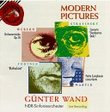

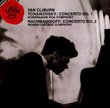
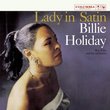

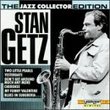
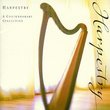
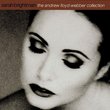

![Yanni Voices [CD/DVD]](https://nationalbookswap.com/cd//m/01/4301/1494301.jpg)
